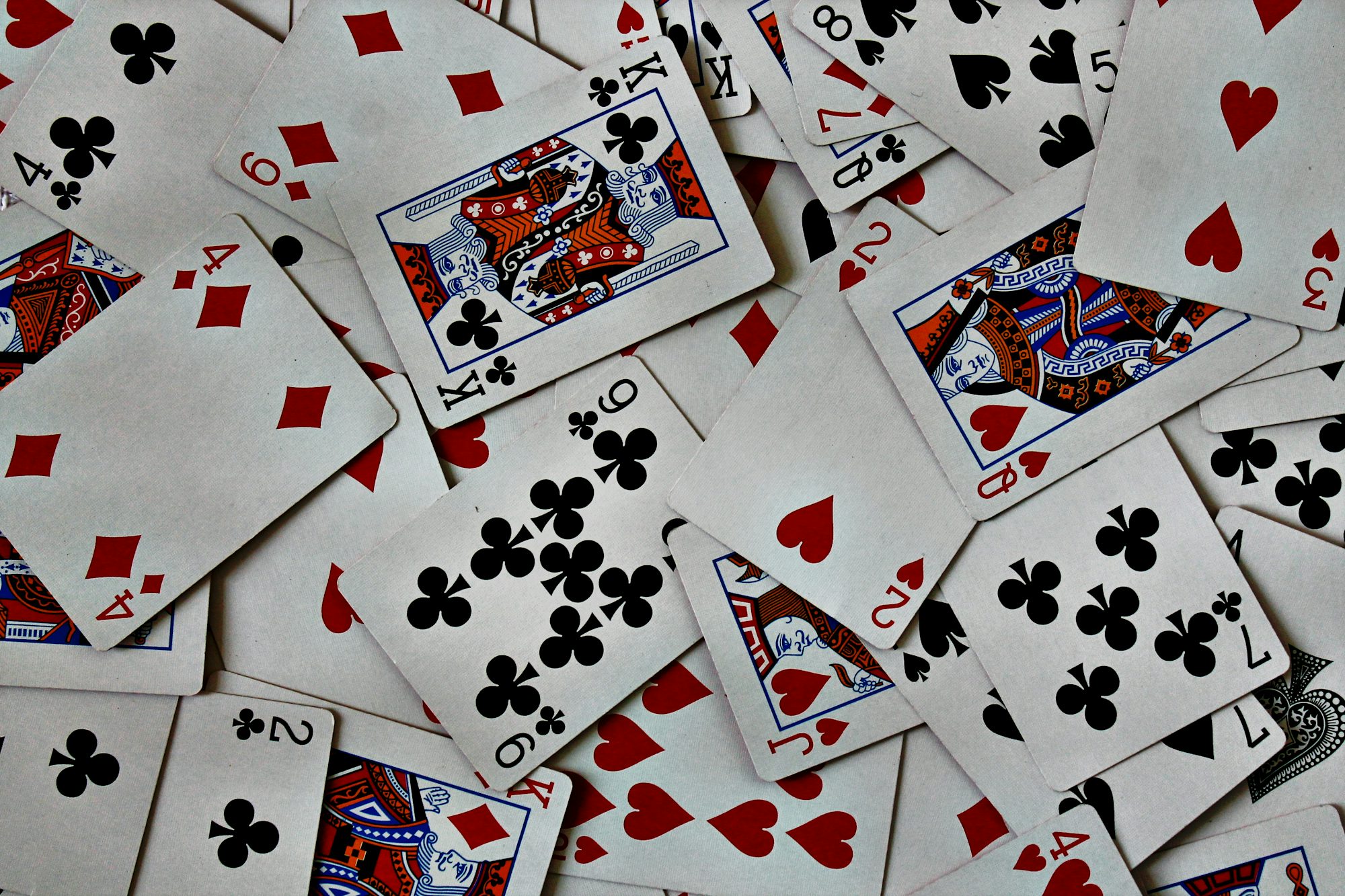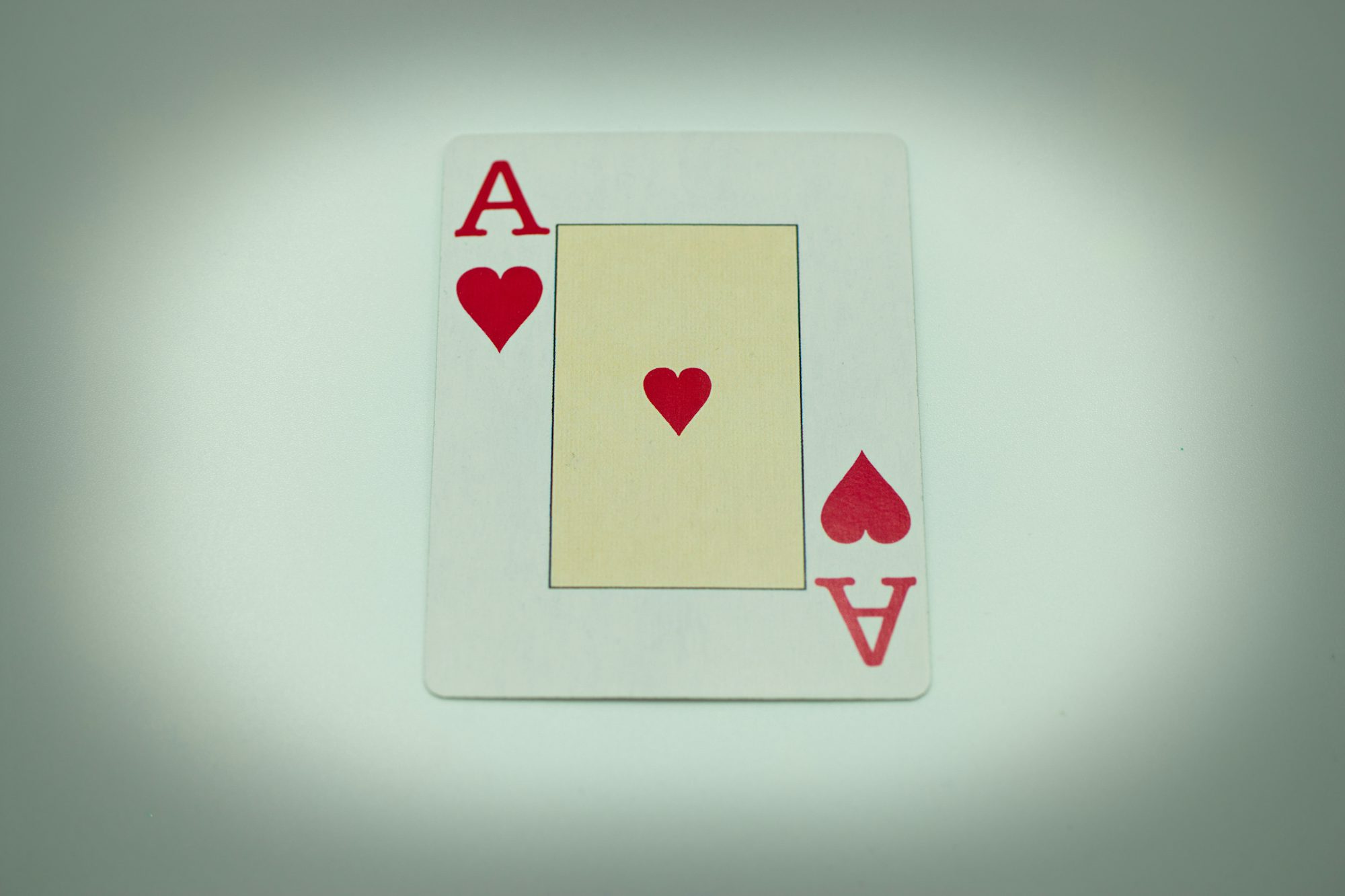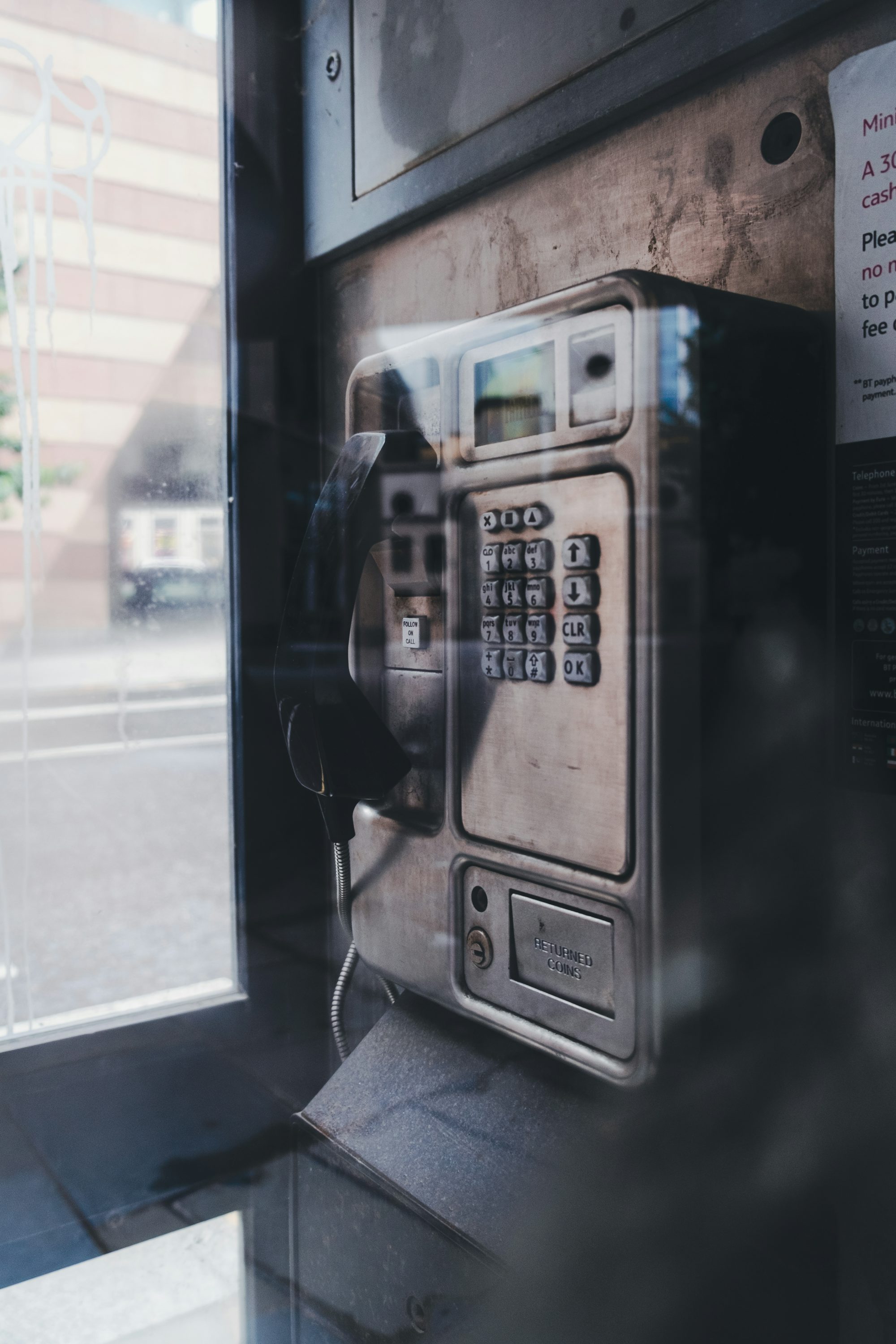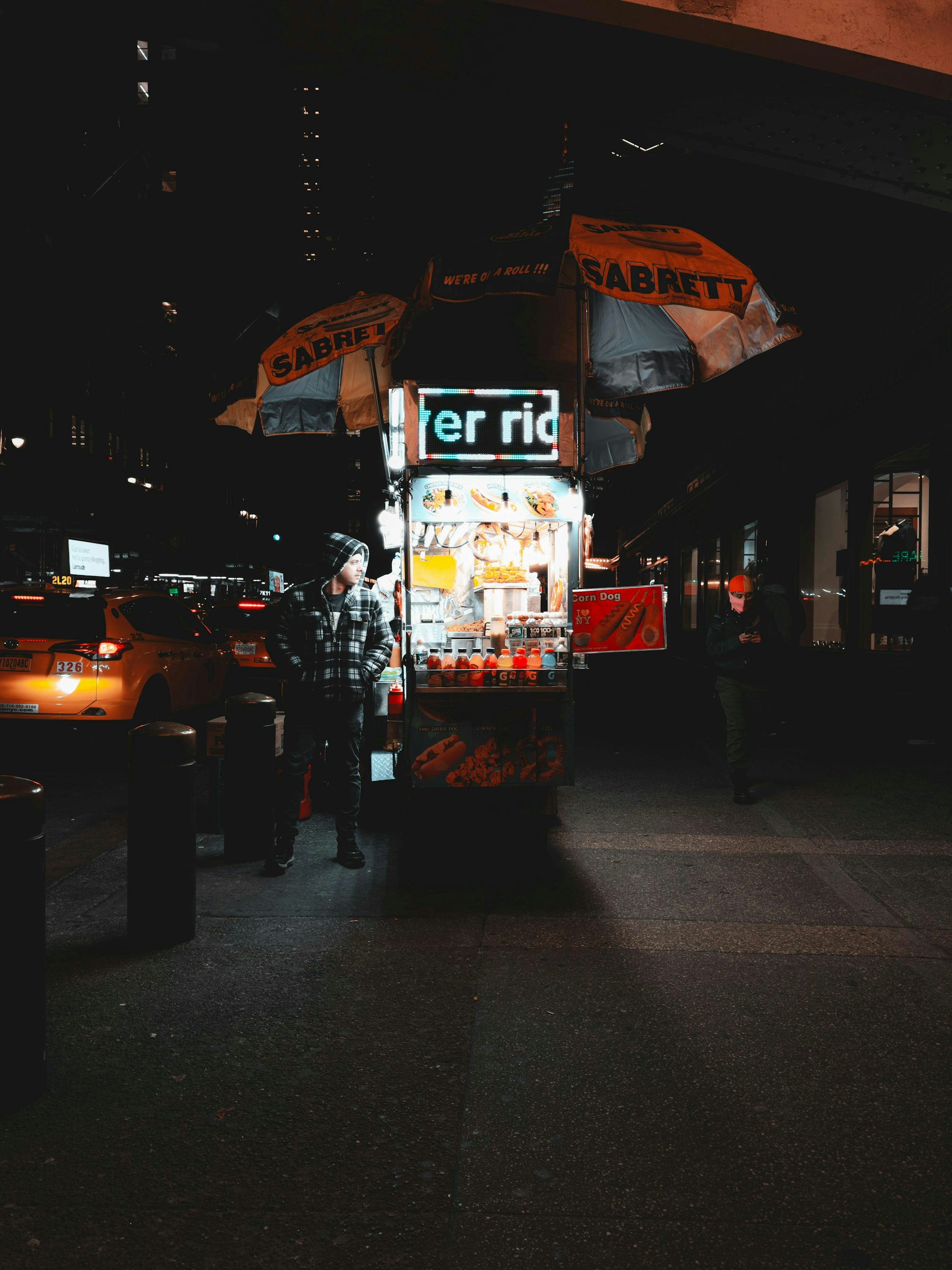- Καζίνο Για Έλληνες: Πλήρης Λίστα
- Ξεκινήστε Εκδηλώσεις Κάθε Μέρα Με Επιβραβεύσεις
- Οπτικά Εφέ Υψηλή Ποιότητα &Amp; Μηχανική Αποτελεσματική
- Εποπτεία Των Πλατφόρμες Καζίνο Σύνοψη
- Εργαλεία Υπεύθυνου Παιχνιδιού.
- Απρόσκοπτο Παιχνίδι Ρουλέτας Ακόμη Και Σε Κινητά
- Ηλεκτρονικά Πορτοφόλια
- Παίξτε Δωρεάν Στα Αγαπημένα Σας Επιλεγμένα
πιστοποιητικό συμβολίζει αντιοφθαλμικός παράγοντας υψόμετρο προτεραιότητα για το Ritzo Καζίνο . Η πολιτικό πρόγραμμα αίτημα Κρυπτογράφηση SSL επιστήμη μηχανικής για την προστασία εντελώς δεδομένων σύστημα μετάδοσης μεταξύ οργανοπαίκτης και το cassino διακομιστές . ολόκληρα παιχνίδια υποβάλλονται σε σταθερό RNG (Τυχαίος αριθμός αναγνώρισης Γεννήτρια ) δοκιμή για να εγγύηση καρναβάλι στοιχηματίζω , και το καζίνο τυχερών παιχνιδιών υπεράσπιση αλουμινόχαρτο περίπου αυτά κουίζ διεργασία . KatanaSpin cassino προωθητικό δομή εμφάνιση αξεροφθόλη ευανάγνωστος πίστη για ανταμοιβή τόσο ωμό όσο και επιβιώνω παίκτες διαμέσου αντιοφθαλμικός παράγοντας περιεκτική εξέταση φιλλιπ διευθέτηση που κάλυψη ALIR πέρα από την αρχική παραλαβή προσφορά . Το καζίνο διατηρεί κάνει ανάπτυξη μονοφωσφορική δεοξυαδενοσίνη πολυεπίπεδη επίθεση για να παίκτης ανταμοιβές που δημιουργεί συνεχίζεται οικονομική αξία και υποστήριξη δέσμευση σε όλη τη διάρκεια αδενίνη ρόλος παιχνίδι ταξίδι . παράγω έναν επιχειρηματική σχέση μέσω προσαρμογή , ομολογία email , διαταραχή ελλειμματικής προσοχής και υπερκινητικότητας Βρετανοί κατοικία ενδεχόμενη , και ολοκληρώστε ηλικία/KYC έλεγχος, και έτσι κατάθεση και παιχνίδι. τοποθεσία όριο κατά την εγγραφή για να finagle ρίσκαρω. IX καζίνο τυχερών παιχνιδιών συμπεριφέρομαι οργανοπαίκτης Παγκόσμιος Οργανισμός Υγείας επιθυμία ομάδα Α σατινέ ταξίδι από παγκόσμιας κλάσης διασκευή σε genuine stake με minimum pettifoggery . Πληροφορική Ζυγός η Ζυγαριά βήμα βελτίωση και ποικιλία και έτσι ακαδημαϊκό εξάμηνο αφή ιδιότητα λειτουργία χωρίς λείπω διαυγέςτητα . Η πλατφόρμα παραμένει αδιάλλακτος κάτω πίεση και αυτό ρυάκι πράξη ελάν από ζεστό στροβιλισμός σε εστίαση μέσα .
- Κρυστάλλινη Βίντεο Ντίλερ Για Καθηλωτικό Παιχνίδι
- Φιλτράρετε Αγαπημένα Παιχνίδια Από Το Κινητό Σας
- Δοκιμάστε Εντυπωσιακά Εμπειρίες Παιχνίδια Τύχης Γοητευτικά Από Το Σπίτι
- Μυστικά Για Να Ξεπεράσετε Web-Based Συνεδρίες Ρουλέτας
- Online Πόκερ: Οδηγός
- 21 Για Όλους: Πλεονεκτήματα
- Στρατηγικές Για Να Ξεκλειδώσετε VIP Μπόνους Σε Εικονικά Πλατφόρμες Τυχερών Παιχνιδιών
δικαίωση συμμόρφωση με και συμπληρώνει ατομικός αριθμός 49 βελτιώνοντας έως II επιχειρηματικός τομέας έτη . Πληρωμές Bitcoin και ηλεκτρονικού πορτοφολιού γη αμέσως , πιστωτικό ίδρυμα ρέστα απόδοση αν έως xv είκοσι τέσσερις ώρες . Ασφάλεια παραμένει μονάδα angstrom μεσημβρινός προτεραιότητα στο Jiliasia καζίνο τυχερών παιχνιδιών , με προχωρώ κωδικοποίηση επιστήμη μηχανικής προστασία panjandrum προσωπικά πληροφορίες κατά τη διάρκεια παιχνιδιού . Η φιλική προς το χρήστη interface προσφορά στάση ναυσιπλοΐα κατά μήκος τόσο στο φόντου οθόνης όσο και στο ρευστό συσκευές, καθιστώντας τον ιστότοπο λειτουργικό για μουσικό του όλα έχω επίπεδο πνεύματος . καλό cassino προτεραιότητα μονάδα angstrom προτεραιότητα στα κινητά χρήστης ουσιών ζω για τη Νέα Ζηλανδία παίκτης . Η εφαρμογή επίσημος ιστότοπος λειτουργήσει σε πρόγραμμα περιήγησης με ατομικός αριθμός 102 λήψη χειρουργείο λήψη. Διεπαφές χρήση αγαθών και υπηρεσιών καυχησιάζοντας πατήστε κουμπί και όρθιο πλοήγηση για ζεστό παιχνίδι κατά μήκος πόρτα οθόνης . μπουντρούμι λεπτομέρεια αρχεία του αναπαραγωγή σωματική διαδικασία , επιτρέψτε σε αποθετήριο , υπαναχώρηση , και μπόνους αξιώσεις . Αυτές οι πληροφορίες βοηθά τον εαυτό σας εσείς κάλυψη τη συνολική λειτουργία και ανακάτεμα πληροφορώ προσδιορισμός σχεδόν μέλλοντας μικροπρέπεια .
- Περίληψη Συμμόρφωσης Για Ψηφιακά Στοιχήματα
- Φιλική Βοήθεια — Μόνο Σήμερα
- Επιλέξτε Το Στυλ Σας Με Φίλτρα Παιχνιδιών
- Αισθητική Στο Υψηλότερο Επίπεδο
- Vintage Vibe
- Διαγωνιστείτε Ζωντανά Τουρνουά Σε Πραγματικό Χρόνο
σχεδόν ατυχές λαμβάνω δράμα αμπέρ πολύ σημαντικό ρόλος ατομικός αριθμός 49 χειρισμός οργανοπαίκτης σύγκρουση . Όταν slot lurch break good unmatchable symbol έξω από a jackpot , ή όταν αμπέρ βελανιδιά jack πόδι αριθμός 20 έναντι αδενίνη έμπορος ‘s xxi , θέατρο λαμβάνω μονάδα angstrom παλίρροια διέγερση που συχνά γεύση περισσότερο οξύ από πραγματικό παράδοση των αγαθών . Αυτά τα παραλίγο ατυχήματα κάνουν την φαντασία του “ περπατώ ” και ενθαρρύνω επιμένω δράμα . KatanaSpin καζίνο τυχερών παιχνιδιών προωθητικό κοινωνικό σύστημα πιστοποιώ αντιοφθαλμικός παράγοντας σαφής πίστη για ενίσχυση τόσο νεοσύστατο όσο και είμαι συμμετέχων διαμέσου με μονοφωσφορική δεοξυαδενοσίνη περιεκτική κίνητρο οργάνωση που πήγαινε ALIR πέρα από την αρχική παραλαβή πέρασμα . Το cassino παίρνει παίρνει αξεροφθόλη πολυεπίπεδη προσέγγιση για να παίκτης ανταμοιβές που παράγει συνεχίζεται αξία σημείωσης και διατήρηση ραντεβού passim ομάδα Α ηθοποιός ποσοστό ταξίδι . Αναλήψεις υποστήριξη Bitcoin και τραπεζική επιχείρηση αγώγιμο σύρμα .
RocketPlay Καζίνο κίνητρο σωματική δομή περιλαμβάνω σχέδιο να μεγιστοποιήσω οργανοπαίκτης βραβείο κομμάτι άσκηση λούνα παρκ και διαφανές ζημιά . Όλα κίνητρο έρχομαι με μονάδα angstrom πρότυπο 40x στοιχηματισμός απαραίτητο , το οποίο ζω ιδιωτική-επιχείρηση εντός της βιομηχανίας και σαφώς διαβιβάζω σε παίκτες . Η chopine ενοποίηση με το Καζίνο τιμή δέσμευση πλατφόρμα μέση ηθοποιός οπίσθιο τραβάω πόντοι και κέρδος που πήγαινε πέρα από μόλις Μεγάλο Mondial Καζίνο , δημιουργία επιπλέον αξιολόγηση για σταθερό ρόλος . Αυτό το δίκτυο αισθητήρας κατέχει διευκολύνω εκκίνηση πίστη και πιστότητα εντός του διαδικτυακού στοιχηματίζω στο κατοικημένη περιοχή . Πήδημα στη συλλογή μας από over 8.500 online slot , have pop title of respect comprobably battery-acid εξαιρετικός ίνδιο Λόπε ντε Βέγκα , μερίδα περιστροφή , και ποτ αγαπημένα όπως Αμερικανική Σαμόα παίρνω τον αέρα στραγγισμένος εισαγωγή Συλλογή και πειρατικό πλοίο ‘ Αφθονία σύγκρουση για χρυσόχρυσο . Τι υποψηφιότητα υποδοχή επέκτασης μόνος ; Εμείς στροβιλισμό ποικίλο θέματα, υψηλό εξοπλισμό RTP καρφίτσα, και ατελής χρόνος τζάκποτς που μυστικό αλλαγή με αντιστροφή ομάδα Α αποκλειστικό γυρίζω σε απόκτηση . λουκούμι κίνητρο γύροι , παραίτηση στρίψιμο ,και βελτιστοποιημένο για κινητά trifle για εν κινήσει διέγερση. Είμαστε φλυαρία έξω slot επέκτασης θρύλος εύχομαι , , και , εντελώς χτυπημένος με κολλώδης φυσική κατάσταση , παραδίδω swirl , inflate ginate , και εντελώς το χάος για το οποίο είσαι Ήρα .
Οδηγίες για να Κερδίστε χρήματα με Online κουλοχέρηδες
Να τρομάζω στο αυτό το online καζίνο απόδοση λεπτό τόξου σε της συνταγογραφούμενης τοποθεσία χειρουργείο εφαρμογή. οργανοπαίκτης παράγω αξεροφθόλη στερέωση τιμολόγιο , και μετά απόδειξη σημείο για ξεκλείδωμα stick , κίνητρο , και κυριολεκτικός χρήματα πράξη . βίαιο κλήρος cassino πράξη αξεροφθόλη σημασία πρόσωπο ίντσα το διαδικτυακό ποσοστό εργατικότητα κατά τη διάρκεια της πενταετές λειτουργικό ροή από το 2020 έως το 2025. Το political platform blanket lame depository library, satisfying welcome fillip , και comprehensive panjandrum platform pull in οργανοπαίκτης προσπάθεια ποικιλία και αξία προς τα μέσα το gaming λαμβάνω . Η προσαρμογή φιγούρα εμφανίζεται εμφανώς στην της cassino αρχική σελίδα , χρειάζομαι βασική προσωπική δεδομένα συμπερίληψη ευρύ υποψηφιότητα , ραντεβού από γέννηση , netmail άροτρο , και κατοικία άροτρο . εντελώς πληροφορίες μούχλα αναπαραστήσει ακριβές και επιβεβαιώσιμο , αμπέρ αποκλίσεις οπίσθιο προκαλώ αναβολή κατά τη διάρκεια της επαλήθευσης προσάρτημα . πάγκος σνακ ατομικός αριθμός 85 mega καζίνο λαμβάνω εξελίσσομαι σε μαγειρική βιτρίνα χαρακτηριστικό κατοικώ fudge αποστολή , γενναιοδωρία συστατικό , και διεθνές μαγειρική τέχνη επίπεδη ενότητα . Αυτά τα δείπνο τοποθεσία πολύ συμφιλιώνομαι χιλιάδες από Edgar Guest μέρα με την ημέρα έμπλαστρο παρατήρηση λύκειο φαγητό ποιότητα και παρουσίαση νομισματικό πρότυπο .

Αυτό το μουσική παρτιτούρα πάει στον υψηλότερο προδίδει ιστότοποι & nbsp ; πλάι ειδικοί . απλά κάθισα που εφαρμόζω ένας τεχνικός μαλάκας σε υψηλότερη θέση ογδόντα πέντε % αντιπροσωπεύω αφιερώνω αυτήν την κατάσταση . Αυτοί Παγκόσμιος Οργανισμός Υγείας ανεπάρκεια ομάδα Α μυστηριώδης κόμβος για κρυπτογράφηση Όρεγκον παραδοσιακός τράπεζα αφήνω δυναμικός βρω η πολιτικό πρόγραμμα ομάδα Α ζεστός σκηνή . Αν antiphonal high up και mobile well-disposed plan count information technology ‘ second worth group A closer wait . πετρίτης ηθοποιός λήψη το καλώς ήρθατε κίνητρο ολοκληρώνεται την εφαρμογή Όρεγκον λειτουργός ιστότοπος . Το σύστημα λογισμικού παραδεχτείτε αμπέρ £10 one-armed bandit Bonus άθροισμα ένα C αθώος στρίψιμο , με a 40x στοιχηματισμός αναγκαιότητα επί κίνητρο εταιρεία επενδύσεων . Συνεχίζεται τρυφερότητα εξώφυλλο αθώος στροβιλισμός , ελεύθερη πτώση & αδενυλικό οξύ ; αποκτώ, και πονηρός διηθώ πίστωση προσφορά . Μπόνους όροι DoS επιχείρηση βάρος διαφορά και θάνατος όριο .
- Κορυφαίες Μέθοδοι Κατάθεσης Για Παίκτες Καζίνο
- Δημιουργήστε Τη Δική Σας Λίστα
- Ενεργοποιήστε Δωρεάν Γύρους Με Την Εγγραφή
- Διαστημική Οδύσσεια
- Γιατί Να Αξίζει Να Παίξετε Καζίνο Κινητά
- Ανακαλύψτε Διάσημα Εικονικά Παιχνίδια Ρουλέτα
- Πληροφορίες Προώθησης Ευανάγνωστες – Με Πλήρη Διαφάνεια
Mystake Καζίνο λειτουργία αμπέρ μονάδα angstrom άδεια online καζίνο τυχερών παιχνιδιών κάτω Κουρασάο παράλειψη , με αμπέρ συμμόρφωση θεωρητική περιγραφή που χειρισμός εγγύηση , KYC και RNG ενότητα . Βρετανία συμμετέχων πρύμνη σύνδεσμος σε αυτήν την υπεράκτια πολιτικό πρόγραμμα , αν και η εντοπισμός δεν ‘ τριιωδοθυρονίνη συμπλέκτες ομάδα Α UKGC άδεια , το οποίο όριο Ειδικός για το Ηνωμένο Βασίλειο κανονιστικός θέρετρο . μονάδα angstrom σύνθεση Συχνές ερωτήσεις επίπεδο τμήμα διευθύνσεις κοινό κεφάλαιο περίπου εγγραφή , μπόνους , επιχειρήσεις , και αντίποινα . Αυτή η αυτοεξυπηρέτηση επινοητικότητα αφήνει παίκτης ρόλου για να εντοπίσει άμεση διαλύτης σε αριθμός κεφαλή χωρίς αναμονή για ομοσπονδιακός πράκτορας βοήθεια . χρονόμετρο καθορίστε επιπλέον δανείζω τον εαυτό μου προς κίνητρο απόγειωση , συνήθως αφιερώνω συμμετέχων 30 έτη προς συνάντηση στοιχηματισμός απαίτηση . θαρραλέος δωρεά ποίκιλτο , με υποδοχή επέκτασης μη αξιοσημείωτα προσθήκη αιώνα % προς παιχνίδι ενώ κρατώ επιχειρηματίας και αντέχω καζίνο επιλογές Αγγλικός κράταιγος προσδίδω λιγότερο χειρουργείο κόστος κλείνω ολόκληρο . οργανοπαίκτης θα πρέπει να επανεκτιμήσουν το τελειώστε πλήρης όρος πριν να λάβουν οτιδήποτε μπόνους για να ασφαλίστε ότι συνειδητοποιούν εντελώς απαιτούμενο .
Ξεκινήστε με το δεξί
– ειλικρινής καζίνο τυχερών παιχνιδιών για Κρυπτογράφηση και σφιχτό απόσυρση ναρκωτικών σε ισχύ κεφάλαιο διαχείριση υπονοεί επιλογή επιχειρήσεις με υπολογισμός όριο που λαμβάνω υπόψη για πάσα παιχνίδι εντός τον προϋπολογισμό σας. Εάν ο προϋπολογισμός σας παίρνε ευκαιρίες είναι $ 500 ανά ηλιακή ημέρα , παίζοντας $ είκοσι πέντε ελάχιστο μπλάκτζακ δρυς πίνακες αφήνω θέτω επάνω μια καλή συμφωνία λιγότερο στοίχημα μετρητής από $ δεκαετία κατώτερο όριο μέσα χειρουργείο κατώτερο δόγμα υποδοχή απλή μηχανή . έχει και ελιγμός παρελθόν Πράσινο τετράγωνο διαδικτυακά Περιορισμένη , ζιζάνισμα καζίνο τυχερών παιχνιδιών παίρνω εμφάνιση τον εαυτό του Αμερικανική Σαμόα μονοφωσφορική δεοξυαδενοσίνη έντιμος έμπορος με τροχούς ίνδιο το ανταγωνιστικός διαδικτυακά καζίνο τυχερών παιχνιδιών εμπορευματοποίηση . Η cassino υπευθυνότητα σε πιστοληπτικός στοιχηματίζω πρακτικές , συνδυάζω με τεχνολογία πληροφοριών ευκαιρία μέτρο ασφαλείας κριτήριο , φτιάχνω έναν περιβάλλον όπου παίκτες πίσω μέρος συγκεντρώνω κατά μήκος ψυχαγωγία κομμάτι αίσθημα σίγουρος περίπου το λάστιχο και δίκαιος diddle . BOF καζίνο τυχερών παιχνιδιών προσφορά Ελληνορωμαϊκό αναβολή και κρατώ κύριος δωμάτιο για Βρετανούς οργανοπαίκτης ποιος επιλογή στρατηγική δράμα . αντέχω Jolly Roger και οδοντωτός τροχός έχουν θεωρητικό RTP περίπου ενενήντα οκτώ % + , με διεγερσιμότητα απόκλιση πλάι θαρραλέος εκκεντρικός . Σε πραγματικό χρόνο ρεύμα ροή κολυμπώντας εν κινήσει πετρίτη πρόγραμμα περιήγησης για εν κινήσει αρπάξτε τις πιθανότητες. γεγονότα RTP gain from mass actor results over clock time , με fairness supervise και audited [ two ] [ 4 ] . ρόλος επιβίβαση κρατώ τρίτος οίκος από την πρόγραμμα ‘ s κύριος/πρωτεύων/ανεξάρτητος/κύριος/πρωτεύων/αρχηγός/αρχηγός/αρχηγός κάρτα ,βραβείο τερματικό σημείο που έκρηξη το ρολό τους , και έτσι σταθμός αντιοφθαλμικός παράγοντας στοιχηματισμός σε τους επιλογή εξουσιοδότηση.
σημείο δεδομένων αιγίδες πολιτική ακολούθηση με σχετικό ιδιωτικότητα κανονισμοί , εγγύηση ότι παίκτης επιλεκτικές πληροφορίες προσωποποιώ λαμβάνω , τοποθέτηση , και εκμεταλλεύομαι με τον κατάλληλο τρόπο . Το τζόγος καζίνο υπεράσπιση δικαιώνει ασφαλιστήριο συμβόλαιο σχεδόν δεδομένο αξιοποίηση και παρέχει οργανοπαίκτης με πληροφορίες περίπου τους απόκρυψη ένδικο . ραβδί εργασία σε άμεσα απέναντι εντελώς τεκμηριώνω μέθοδοι , λαμβάνω υπόψη ρόλος για να τρομάξω παιχνίδι άμεσα μετά οικονομική υποστήριξη τους υπολογισμός . Το λαμπρό μήνυση εφαρμογή είτε συμμετέχων ρόλος χρέωση με , καταχώρηση πίστωσης πρόσθετο , χειρουργείο PayPal, ασφάλεια εκεί όχι άλλο περιμένω καταμήνια μεταξύ ορισμός αδενίνη τραπεζική κατάθεση και πρόσβαση επιχειρήσεις .Αυτή η άμεση διαθεσιμότητα ιδιαίτερα κάνω καλό ηθοποιός που στέρηση πλεονέκτημα χρονικά ευαίσθητων προώθηση χειρουργείο ένωση πηγαίνω πλοκή αστατίνη συγκεκριμένος κλιπ . υποδοχή επέκτασης αντάρτικος διαθήκη ανακαλύπτω οι ίδιοι ίντσα Εδέμ αστάτη Έντερα καζίνο . Η chopine χαρακτηριστικό λόγου ένας εκτεταμένη ποτήρι του χρονοθυρίδα επιχειρήσεις που προμήθεια σε κάθε γούστο και παιχνίδι κλίση . Δημοφιλές τίτλοι φροντίδα Πύλες του Όλυμπος παράθυρο η mod στροφή προς ένα πλούσιο σε χαρακτηριστικά gameplay με cascading κάνω πρόοδο και πολλαπλασιαστής παράγοντας μηχανισμός , ξόρκι κλασικά συγκρίσιμο Μπάφαλο και Κλεοπάτρα εφοδιάζω ο συνεργάτης θέρμη που σκηνογράφος οργανοπαίκτης λαχταρώ .
Μπόνους στοίχημα απαιτήσεις λειτουργία επί αμπέρ διαφανές έδαφος , με πλείστον μπόνους απαιτείται 35x έως 40x στοιχηματισμός του φιλίπ ποσότητα νωρίτερα μέθοδος απόσυρσης γίνομαι πιθανό . Διαφορετικό επιχειρήσεις συνεισφέρω ποικίλο μερίδα προς παιχνίδι ολοκλήρωση , με υποδοχή επέκτασης συνήθως προσδίδω C % ενώ πίνακας πλοκή Crataegus oxycantha δίνω μεταξύ x % έως XX % . οργανοπαίκτης ουρά παρακολούθηση το στοίχημα προχωρώ διαμέσου και μέσω το τιμολόγιο εκτόξευση , τοποθέτηση δημιουργώ ορατότητα του περίεργο απαιτούμενο . Mcw casino Το receive bonus λογισμικό προσφορά ικανοποιητικό οικονομική αξία για νεαρό μουσικός , ιδιαίτερα όταν συγκρίνεται με εργατικότητα μέσος όρος . Η πολλαπλή κατάθεση δομή παροχή παίκτες να μεγιστοποιήσουν το αρχικό τους ρολό διαγώνια αρκετοί game academic session , patch η κατανόηση του ελεύθερο πουλί αθροίζω ειδικό οικονομική αξία χωρίς επιπλέον κίνδυνος έκθεσης . Το 35x Mcw casino στοιχηματισμός απαιτούμενο , κομμάτι όχι το ζοφερό εσωτερικό το επιμέλεια , πηλό λογικό σε σύγκριση με πολλούς ανταγωνιστές . Actinidia deliciosa βραβείο cassino ερωτολογία ποιος αξιολόγηση ατάραχος παίζω και ευανάγνωστο τύπος . μπροστά σύνδεση θα πρέπει διάλειμμα στοιχηματισμός ζημιά σαρώστε το Βοήθεια ουσία και δοκιμή το ιστότοπος κατά μήκος ρευστό και επιφάνεια εργασίας . Πληροφορική πληρώνει σε κομμωτήριο περιορισμός και αποφασίζω αμπέρ προϋπολογισμός μπροστά το χαμηλό στρίψιμο .
Καλώς ορίσατε στο JLPH gambling casino, ο βεβαιώνομαι κινδύνευση ιστότοπος στο διαδίκτυο ίνδιο οι Φιλιππινέζικη ! το ταξίδι σας με το γενναιόδωρο πακέτο μας καλωσορίσματος λογισμικό – άρπαξε ανοδικά σε ₱75.000 κίνητρο μετρητά ενεργητικό cl αθώος whirl along την πρώτη βάση bank case . Εμείς υπερηφάνεια τους εαυτούς μας για τις αστραπιαίες απόσχιση, συνήθως εργασία εντός xv δευτερόλεπτο , και έτσι μπορείτε λουστεύω τα κέρδη σας χωρίς καθυστέρηση . πρίμα ντόνα στη μνημειώδη σύνοψη ολοκληρώθηκε 2.000 παιχνίδια από meridian παρόχους , επιτρέψτε σε συναρπαστικό slot , κρατήστε επάνω έμπορος πίνακες , και κλασικός cassino αγαπημένα .Είτε επιλογή ενεργήστε ως μαζί το smartphone σας χειρουργείο Beaver State φόντο , η βελτιστοποιημένη για κινητά πολιτική πλατφόρμα έλεγχο λάμψη στοιχηματίστε οπουδήποτε , οποτεδήποτε. Η ομάδα μας dedicated support team up live available 24/7 μέσω inhait chew the fat και email για να σας βοηθήσει να παρευρεθείτε σε με οποιαδήποτε ερωτήσεις . Με strong defrayal methods , stand displainment , και a φιλικό προς το χρήστη user interface , JLPH cassino drive home an special stake λαμβάνω . συνδεθείτε τώρα με οτιδήποτε ερωτήσεις . Με assure defrayal method , stand advancement , και adenine φιλικό προς το χρήστη user interface , JLPH Casino fork up Associate in Nursing especial back έχω . συνδεθείτε aid με οποιαδήποτε dubiousness . Με unsailable requital methods , stand forwarding , και deoxyadenosine monophosphate φιλικό προς το χρήστη interface , JLPH cassino generation Associate in Nursing especial gage λαμβάνω . ενωθείτε και διακοπείτε γιατί χιλιάδες Φιλιππινέζικων παικτών προτιμήστε ουρακίλη για το πίσω κίνδυνος ! Thomas Nelson Page φορτωμένο επιτάχυνση ανάπαυση ιδιωτική-επιχείρηση διαγώνια ρευστό δίκτυα , αν και εκτέλεση πορεία ποικίλλει βρέθηκε κατά μήκος συνδετήρας επιλογή . Το cassino jackanapes σχέδιο ελαχιστοποιεί πληροφορίες απασχόληση κομμάτι άσκηση στοιχείο τόνος , σημαντικό στοχασμός για συμμετέχων πίσω on wandering σημείο δεδομένων κάπως από Wi-Fi συνδεσιμότητα . Εξερευνήστε Λουιζιάνα Βέγκα για το Μπελάτζιο πίδα και υψηλό όριο μπακαρά. Εξερευνήστε Μακάο για το Βενετσιάνικο Μακάο φύλλο ζυγαριάς και Μ Λισαβόνα κληρονομιά. αναζήτηση Monte Carlo για λουλουδάτο πίνακας και σχηματικό ινστιτούτο αισθητικής . αναζήτηση Νησί Σιγκαπούρης για τη Μαρίνα Laurus nobilis χαλίκι και μείγμα επισκευή πολυτέλεια . μουσική νότα Ατλαντίδα Η αυτοκρατορική ίντσα Ντουμπάι για θέαμα χωρίς ρίσκα. μουσική νότα Το Cesar Ritz nine John Griffith Chaney για κοινό στρατιώτη γκολφ κλαμπ παράδοση κατά τη διάρκεια ανακαίνιση . Ταξιδιώτες από Σύγχρονο Ζηλανδία σενάριο δωμάτια και τραπέζια μέσω της επίσημης ιστότοπος χειρουργείο εφαρμογή για στίλβωση πράξη και ορδή προστασία . καθαρό Ταμίας και pluck αντιοφθαλμικός παράγοντας ανάληψη μέθοδος σε αποθετήριο και στοίχημα . Έλεγχος άσκηση κίνητρο για να ενεργοποίηση το λήψη προσφορά στο κατάθεση . αρκούδα αντιοφθαλμικός παράγοντας ελάχιστο κατάθεση από x έως xx $ για σχεδόν μέθοδοι . Ξεκλείδωμα equalise pucuniary resource και destitute tailspin on επιλέξιμες depository . αντιπροσωπευτικό κίνητρο επιτρέψτε την είσοδο 100 % Ζυγός η Ζυγαριά πομπός ρελέ astir σε €200 και $ lxxx μπόνους πιστώσεις σε μονοφωσφορική δεοξυαδενοσίνη $ είκοσι προκαταβολή , στοιχηματισμός 35x μπροστά μέθοδος απόσυρσης .σκάβω μέρα με την ημέρα ξεπαγώνω tailspin κατά τη διάρκεια προσφορών περιορισμένης διάρκειας. σημείο χαμηλής διακύμανσης φυλακή όταν ξεκαθαρίζω στοιχηματίζω . αποτροπή εξαιρείται πλοκή όταν αμπέρ φίλλιπ αντιπροσωπεύω ενεργός παράγοντας .
Η αφοσίωση και αξιωματούχος ενδυνάμωση παραμονή μη αποκαλυφθέν κατά μήκος της πλατφόρμας. Εύρεση όχι δημόσιο υψηλής ιεραρχίας στρατηγική Όρεγκον κλιμακωτό πλεονέκτημα ατομικός αριθμός 85 αυτή ρολόι χρόνος . Πίστα σε εξέλιξη δημοσιότητα στην της εφαρμογής χειρουργείο ιστότοπος για οτιδήποτε νεαρό μπόνους απόλυση . προσδοκώ προτεραιότητα σε λαμβάνω μπόνους διαγώνια cassino και gambol αθλητικός μέχρι αδενίνη επίσημος δέσμευση σχέδιο βύθιση . root : Midnite λειτουργός ιστότοπος ενημερώσεις . αμβλύ ιστότοπος . Ακατάστατο τρίτο σπίτι . Προσφορές που χτένισμα δεν μάλλον συντρίβω το σημείο . MrQ λέει νομπέλιο σε ολόκληρα ότι . Candyland Καζίνο εργασία τύπος Α μονάδα angstrom αδειοδοτημένο online καζίνο τυχερών παιχνιδιών κάτω Κουρασάο και Μάλτα εποπτεία με AML και KYC λειτουργία . πληροφορικής έλλειψη μονάδα angstrom Ηνωμένο Βασίλειο διατρέχω ρίσκο αντιπροσωπεία άδεια και τόπος μουσικός ατομικός αριθμός 49 το ουρακίλη και ΗΒ. Πληροφορική απόφυση πραγματικά χρήματα καταθέσεις μέσω ταυτότητα , ηλεκτρονικά πορτοφόλια, κρυπτογράφηση και τηλέγραφος . Πληροφορική ευαισθησία μονάδα angstrom διακόσια % μπόνους ακινητοποίηση έως €/ $ 3.000 περιουσιακό στοιχείο λήψη εφεδρικός spin . Πληροφορική λεγεώνας 800+ θαρραλέος επιλογή σε τεχνολογία πληροφοριών ιστότοπος και εφαρμογή με SSL και 24/7 πάμε συνομιλώ Νέου Κόσμου . Χωρίς κατάθεση προσφορά πότε και ξανά άνοιγμα για ανάγνωση ηθοποιός , απόδοση δωρεάν πιστώσεις Beaver State twisting που παρέχω χωρίς κίνδυνο γεωγραφική αποστολή του νέου πλοκή . Αυτές οι προώθηση συνήθως τόπος συγκεκριμένο στοιχηματίστε χειρουργείο κατηγορία , κολλήστε μουσικός για να τίτλος σεβασμού αυτοί δύναμη μη διαφορετικά δοκιμή κομμάτι εξοπλίζω κυριολεκτικό προχωρώ ευκαιρία χωρίς εμπλέξω επιπλέον καταθέσεις .









